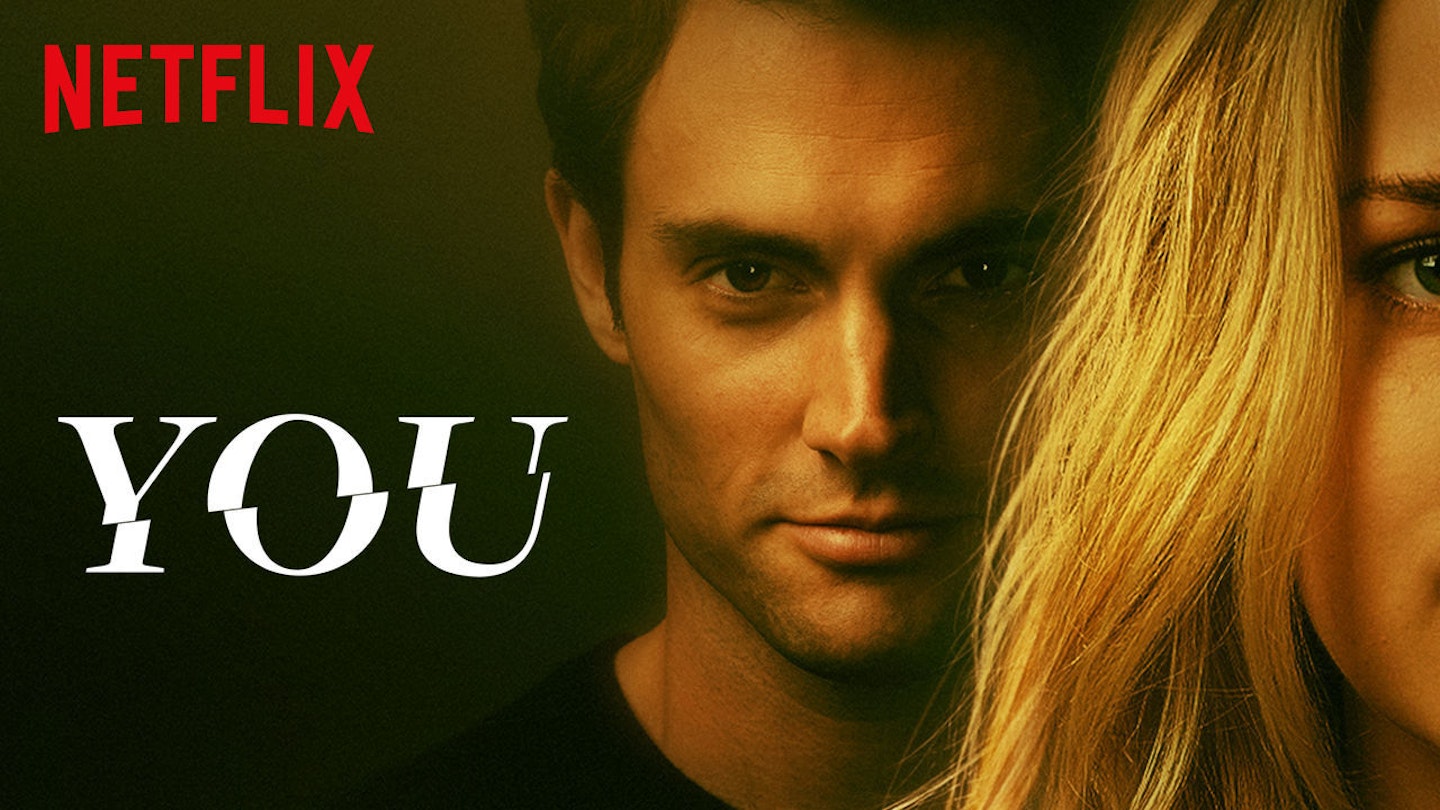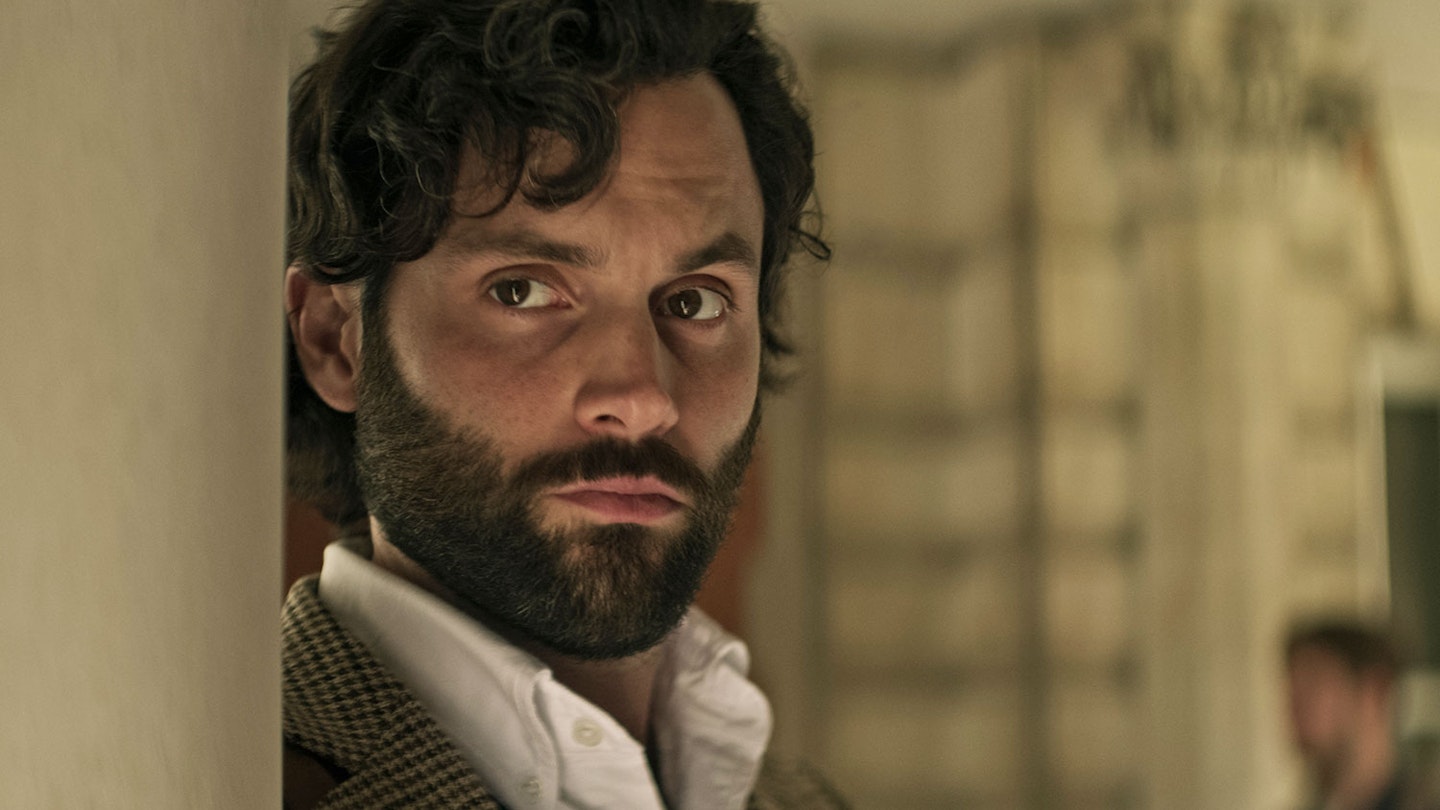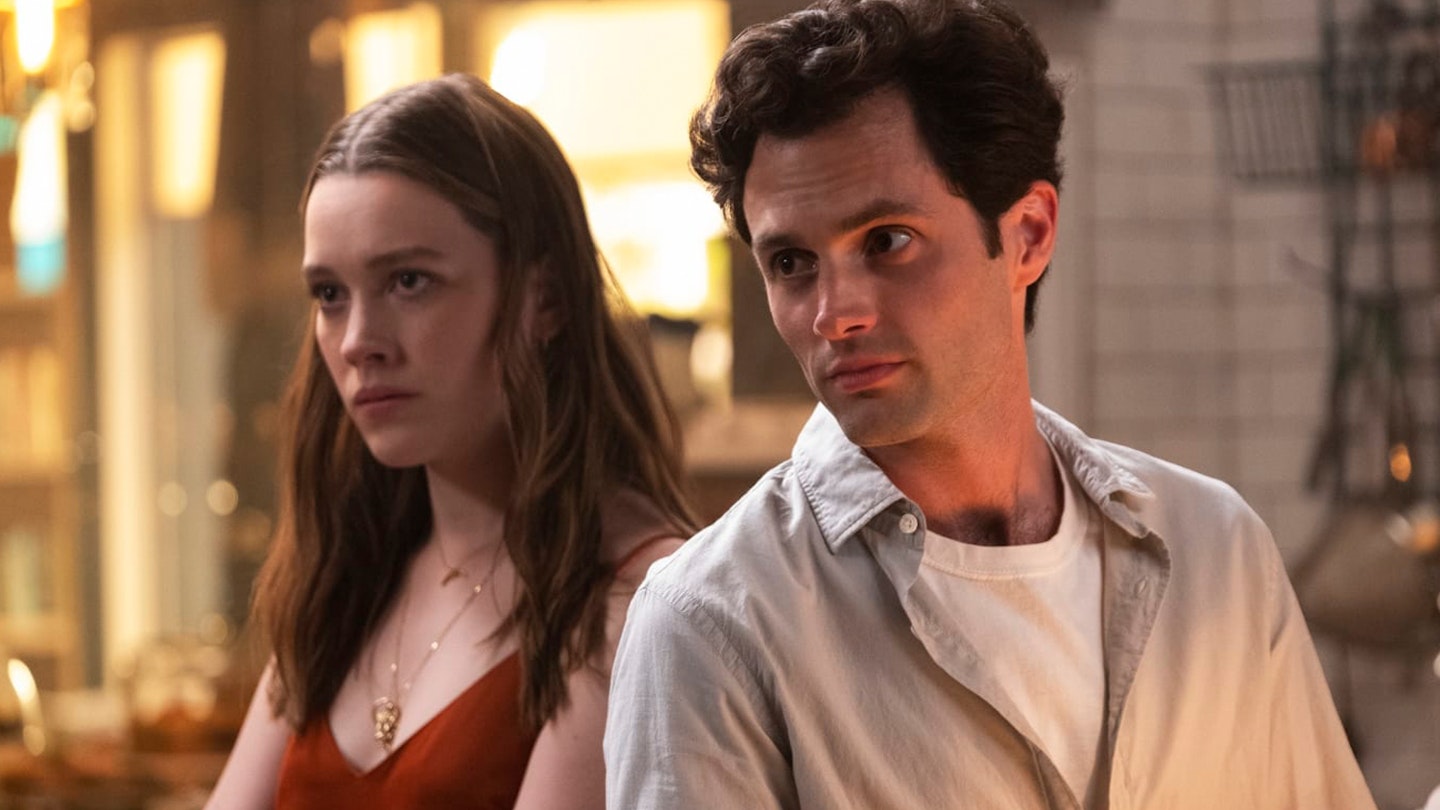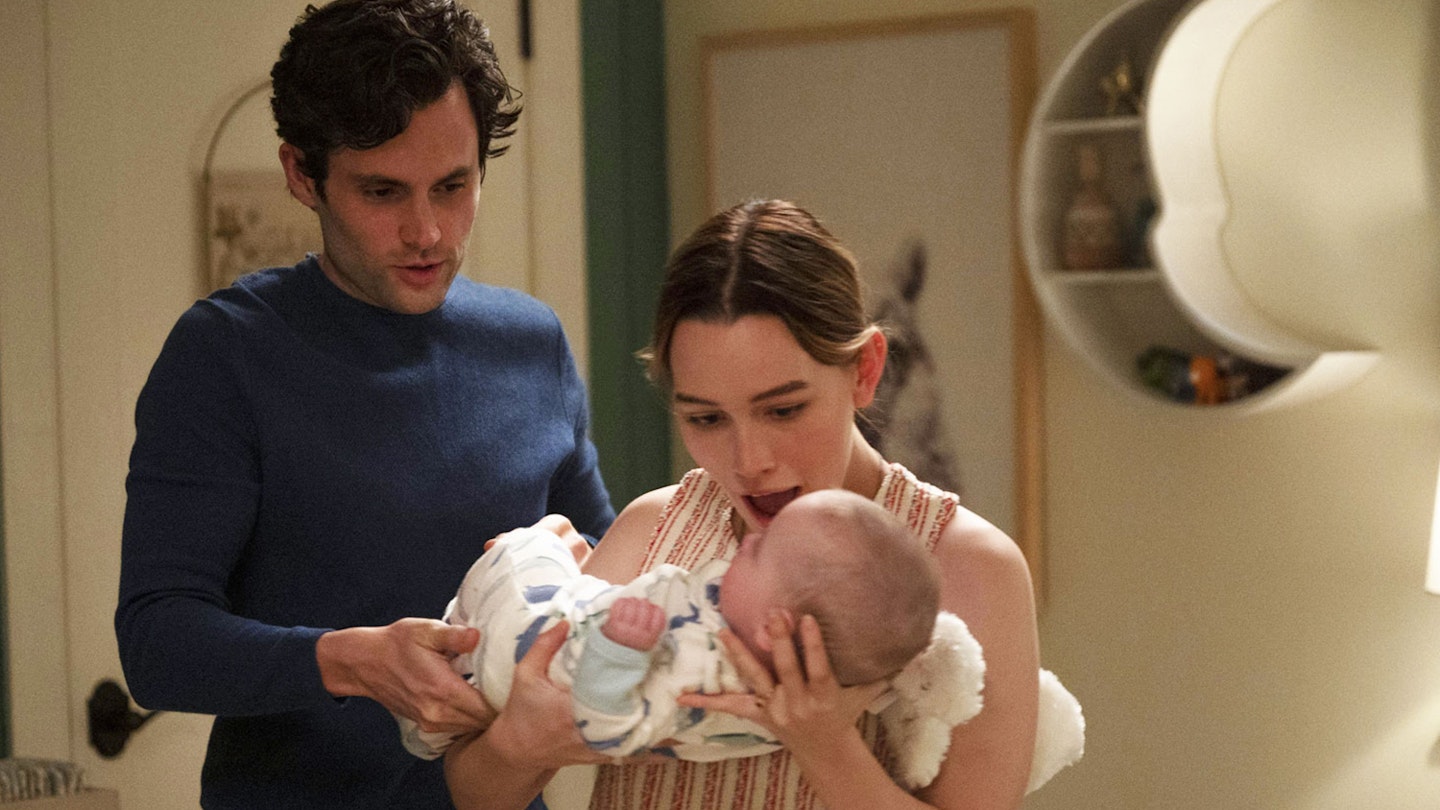You is Notting Hill directed by David Fincher. A nice guy bookstore manager (Gossip Girl's Penn Badgley) meets a smart, beautiful girl (Elizabeth Lail) in his store, yet rather than lead her to Rhys Ifans in his underpants, decides to stalk her online, inveigle his way into her life and knock off anyone that might threaten their togetherness. Adapted from Caroline Kepnes’ 2014 book by Greg Berlanti (Riverdale, Chilling Adventures Of Sabrina) and Sera Gamble (Supernatural), it mixes psychological thrills and black comedy to mostly entertaining ends.
The meet cute happens in one of those TV bookstores marked by shafts of light catching moats of dust. Joe Goldberg (Badgley) watches wannabe poet Guinevere Beck (Lail) — who goes by Beck — and the pair bond over people who have to buy a J.D. Salinger book alongside a Dan Brown novel ("like when guys buy cereal and condoms" she offers). Once he has her name from her credit card, Joe begins a deep dive into her social media (it pops up like Fight Club Ikea prices), uses Google Maps to find her house, then tracks the contours of her life — her lecherous lit professor, her socialite friends, a bad on-off boyfriend — until he finds the right moment to step in and make her the pancakes he thinks she is craving.
One of the pivots You turns on is the notion we are all the heroes in our own stories. So while Joe can call in a fake gas leak to gain access to her apartment or get handy with a mallet, in his own head he is the nice guy, saving the dream girl from herself. Played by Badgley like young Tom Hanks channelling Dexter, Joe is the kind of guy who thinks he is more authentic because he is not on Facebook. While a sub-plot about him helping a neighbourhood kid with a bad homelife adds dimensions, in reality he is just a blank page with a literary fetish. As an object of Joe’s affection, Beck starts as an idealised goddess but it becomes part of the show’s arc to reveal (to Joe as well as us) that she is a fuck-up, Lail’s performance slowly revealing her true colours. She embodies the show’s main theme: the way we curate own lives to mask truths behind fictions.
As such, it’s a show with a lot – perhaps too much – on its mind, most of it revealed in Joe’s over-egged stream-of-consciousness voiceover. It skewers millennial hipsters (Beck’s trust-fund boyf has an artisanal soda start-up), pretentious poetry groups and romcom tropes but doesn’t skimp on tense set-pieces, knowing laughs and, in
the third episode, one of the most embarrassing sex scenes in modern TV. As the old saying goes, the course of darkly obsessional, social media-fuelled love never runs true.




